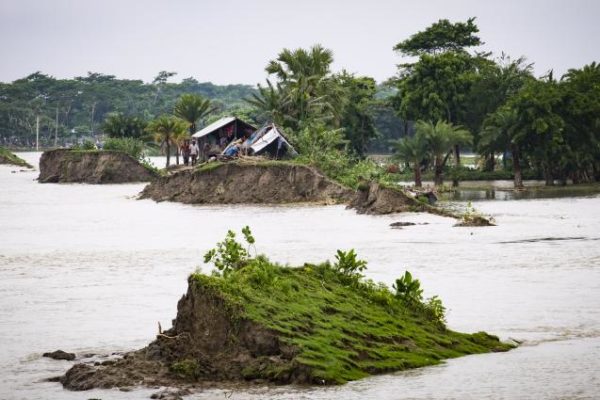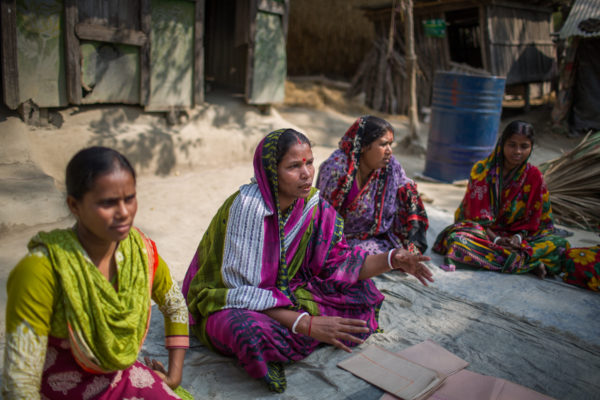Even when women are able to earn an income, they are often expected to hand the money over to their husband or male relative, and have little say on how their earnings are spent.
The South Asia Women’s Resilience Index, developed by ActionAid Australia in collaboration with the Australian Government and The Economist Intelligence Unit, demonstrates that countries across South Asia fare poorly in terms of supporting women’s resilience to disasters. Many countries in the region, such as Bangladesh, have significant economic and social barriers to women’s empowerment, which increases their vulnerability during disaster.
For this to change, women’s access to information and collective action is key. With information that accurately describes their situation, the challenges they face and opportunities available to them, women are able to organise and mobilise to start challenging the inequalities they face on a daily basis, together.
Changing gender perceptions through a community Resilience Index
In collaboration with the Overseas Development Institute, ActionAid developed the Measuring People’s Resilience Toolkit to identify gender inequalities that lead to the disproportionate impact of disasters on women and girls. The toolkit was piloted in three districts in Bangladesh; Patuakhali, Faridpur and Barguna. It has started a dialogue in these communities between men and women on the differences in levels of resilience between genders and other excluded social groups. Women are now more aware of the factors that limit or promote their resilience, and are determined to work collectively to improve the situation through solutions they themselves have identified.
Women leaders preparing the community for floods
Last year, 36 women leaders led 443 community participants to develop resilience action plans for their communities.

The damages of flooding in Patuakhali
Through increased awareness of their resilience, women leaders in Faridpur recognised that they must be proactive in preparing their communities for rapidly rising water levels, amidst the fear of the annual monsoon floods. Women convened meetings in their courtyards to build awareness with both men and women in the community. They encouraged community members to stockpile dried foods and to keep an emergency safety net fund if possible. They also started to identify the most vulnerable – children, people with disabilities, the elderly and pregnant women – so that they could quickly be evacuated to safe zones during a possible flood.
Fortunately, the water level did not rise as much as feared and people did not have to leave their homes during the flood, however, many crops were destroyed. With farming being the primary economic activity for local communities, many people experienced serious economic losses as a result of the destruction. In response, women leaders decided to prepare a list of the affected farmers, and submitted applications to the Union Council and Department of Agriculture for financial assistance. The Union Council responded favourably, providing 40 of the most affected families with staple food products.
Steps towards change
One of the key outcomes of the Resilience Index has been the collective mobilisation of women, and empowerment of women leaders to guide community members in resilience-building efforts. Throughout the project, women have been able to initiate processes that incrementally build their resilience by challenging and transforming existing gender stereotypes.
“Being a leader in disaster response and risk reduction has changed my life. People now respect me and judge my work and experience a lot more than before. Each time there is an emergency I contact everyone in my network to tell them that the disaster is coming, and I give suggestions and advice about what steps to follow and who should do what. Everyone gives importance to what I say. Everybody respects me. I am creating change! I am so proud of how far I have come and everything I am able to do now.”

Sabita Rani, Emergency Response Leader, Bangladesh
Women’s social mobility in their communities has improved markedly, with women who previously never left their homes being some of the first to participate in disaster preparedness initiatives. Men are also increasingly able to see the negative impact certain traditional practices have on women and how small changes can make a big difference to the resilience of women, the household and the community.